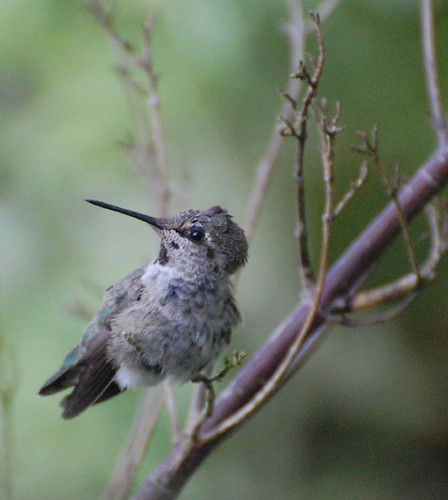I don’t know why, but when I see the word “prayer,” I get this picture of human beings handing the Almighty a “honey-do” list: Help us do this, let us have one of these, save my (or someone else’s) life. If we want something we know is beyond our capacity to secure for ourselves, we go ask God. And if we’re really desperate, we’ll bargain. If You do this for me, I’ll do this. Or I’ll never do that again. As if anything we have the power to give or withhold would hold a lot of weight with the Creator of the Universe.
Yes, I know. Not all prayers are requests. Perhaps it was my Catholic upbringing that sullied my personal concept of prayer. From the time we were old enough to string two words together, we were taught prayers. There was that somewhat maudlin old stand-by, “Now I Lay Me Down to Sleep” (…if I should die before I wake? Quite a concept for a three-year-old…) And there was grace—a “thank you,” but a very specific one. Thanks for the food. Thanks for not letting us starve. And, truly, it had little meaning for a suburban baby-boomer child. Clothing, a warm bed, food, comfort—those things simply…existed. They were ours, without having to beg, work, or worry. It’s difficult to feel true gratitude for something you have never done without. So grace was more like an incantation than any expression of real emotion; as were most of the prayers in the Catholic liturgy.
As a twenty-something born-again Christian, my definition of prayer expanded. Evangelicals try really hard to make it appear that their goal is a “right relationship with God,” rather than thinking of God as either a last resort or a celestial supermarket. Yes…you still go to God with your wish list. But you also pony up a hefty portion of praise and thanksgiving—“spontaneous” expressions of appreciation for the majesty and bounty of the Almighty But…let’s face it. We weren’t shooting those “Alleluias” up into the sky with no thought of return. Anyone who thinks there is no ulterior motive in it is not being entirely honest. Because, you know, we tend to go heavy on the thanks and praise when we want something from God. If we stay on the good side of the Almighty, the Almighty will be on OUR side when times get tough. Or maybe WON’T visit plague or pestilence or judgment upon us. You need only to look at the post-9/11 power surge of the American Christian Right to see this concept in action on a (frightening) national scale.
Then came the days after life had finally dealt me some tougher cards, and I became a card-carrying agnostic. I just couldn’t reconcile the evangelical father-god, brother-Jesus with the sad and cruel events of my life. Or of any human being’s life. And the Catholic God—the one who tended toward the stick rather than the carrot—didn’t resonate with me, either. These interpretations of the Author of the Universe were entirely too human. They ascribed to the Almighty all the motivations and emotions of the human race. Even the negative ones. Especially the negative ones, maybe.
Jealousy, hatred, anger, greed, irrationality… “God” displays these in godlike proportions. And “prayer” becomes a way to ward off the bad stuff—whether through direct request (Please don’t kill me!), thanksgiving (Thank you for my wonderful life…please don’t kill me!) or praise (Ah….You are great and powerful…please don’t kill me!) To me, the average human being’s indulgence in “prayer” amounts to little more than disingenuous, self-serving attempts to dodge adversity. My friends of pastoral bent will no doubt take issue with this generalization. I’m aware that “prayer” can and does mean something entirely different to an enlightened subset of humanity. But I maintain that, to your average Joe Blow on the street, prayer has less to do with conversation with God, and more to do with covering one’s ass. If it is indulged in at all.
So when, in my spiritual journey, I came across an exhortation to “know all the prayers of everything around us—birds, fish, rocks, trees, streams,” my spirit could not bear witness to it. Even this comfortingly pagan-sounding concept seemed like yet another instance of human beings ascribing human characteristics to things that are not human. If we don’t “know” it, if we don’t understand it, we humanize it; as we have humanized the Almighty.
Our uniqueness as a creation—our possession of language as a means of communication, our “free will” to think and reason (which is not necessarily a blessing…)—have fitted us to the idea of “prayer.” Why should other creations, lacking these traits, “pray?” Why shouldn’t the ability, the need to pray be as unique to human beings as the ability to breathe water is to fish?
I would argue that a fish or a tree or a rock has not severed its intimate connection to the Universe, so it has no need to seek conversation with the Almighty. It is in constant communication with the Spirit. Of all creation assigned to this Earth, we seem to be the only ones who have forgotten that we ourselves are a part of the Creator—that we are in the Spirit and the Spirit is in us—and so feel the need to cry out for/to It. How very bleak!
Do we need to learn the prayers of the birds or the streams or the mountains? No…but we need to seek their counsel. We need them to show us how to recall and rest once again in our oneness with the Creator. We need them to show us how not to pray.
Changes
8 hours ago


















Given the way Rae Beth told her story I'm not sure if we're looking at a prayer, a song, a hymn or a spell. Within a family we can be thankful just because we are, just because the universe is.
ReplyDeletePrayer for me has become more about shutting ME up, becoming still enough that if God seeks to speak to me, in whatever manner God speaks, then I have half a chance of paying attention. Although I do like words, sometimes - it helps to have words when praying with others who expect a priest to have wise words for prayer.... :-) But I agree, learning to pray as the earth prays is a good thing.
ReplyDeleteExcellent!
ReplyDeleteI guess it is one of those personal things. I always feel better chanting the Hail Mary to lull me to sleep at times.
ReplyDeleteI had to smile at your observation on "Now I lay me down to sleep..." I never taught that to my children for exactly that reason. There was just one prayer I taught them when they were little, and it was this: "Help me to work, help me to play, help me to learn, a bit each day...teach me to wash, teach me to scrub, to hang my clothes, to clean my tub, to put my toys upon the shelf...help me, Dear Lord, to help myself". That's a great prayer.
ReplyDeleteIf this shows up twice, please delete appropriately; Blogger's being weird. I said before (but the comment seemed to disappear) that I didn't teach my children Now I Lay Me Down to Sleep for exactly the reason you cited. Instead, I taught my children just this one wonderful prayer: "Help me to work, help me to play, help me to learn a bit each day; teach me to wash, teach me to scrub, to hang my clothes, to clean my tub; to put my toys upon the shelf; Help me, Dear Lord, to help myself."
ReplyDeleteWe need them to show us how to recall and rest once again in our oneness with the Creator. We need them to show us how not to pray.
ReplyDeleteProfound.
Sometimes I reread Johnathan Livingston Seagull to remind me of this same line of thinking.
And you know that I have a strong sense of God, however, it is way different than what people expect from me.